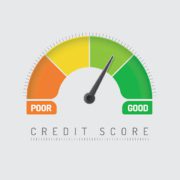Conventional, FHA or VA: Which Loan is Right for You?
When it comes to getting a home loan, there are a number of options available to U.S. home buyers, but there are three programs that seem to be the most requested.
- Conventional
- FHA
- VA
What are the differences in these loan types, and which is right for you? We’ve got the answers.
No matter which loan type you are considering, get started fast with Home Snap.
 Conventional Loan
Conventional Loan
Conventional loans are the most popular mortgage loan in the US. Conventional loans make up nearly three quarters of all home loans in the country. At Mortgage 1, this percentage holds true, also, according to Mortgage 1 CEO Mark Workens. Michigan Mortgage is a DBA of Mortgage 1.
What is a conventional loan?
A conventional loan is a mortgage that is not insured or guaranteed by the government. Instead, the loan is backed by private lenders. With a conventional loan, insurance, if there is any, is paid by the borrower.
Why do so many home buyers go with a conventional loan?
One reason is flexibility. Conventional loans can be obtained for a variety of lengths and for a wide range of terms. Provided you put down at least 20 perfecnt, conventional loans don’t require any mortgage insurance. And conventional loans can be used for second homes or vacation properties.
Here’s a summary of conventional loan pros and cons and who they are best suited for.
Pros of conventional loans:
- Low interest rates
- Fast loan processing
- Variety of down payment options, starting as low as 3% of the home’s sale price
- Various term lengths, ranging from 10 to 30 years
- Reduced private mortgage insurance (PMI), if needed
Cons of conventional loans:
- Require good credit score
- Require 20% down payment to avoid insurance
- More stringent eligibility requirements
Conventional loans are good if:
- You have a good or excellent credit score and can qualify for a low interest rate.
- You’re purchasing a second home or a vacation home.
- You’re purchasing a property you plan to fix up and flip or rent.
- You will make a 20 percent down payment and won’t need PMI.
- You want a shorter loan term or flexible terms, (e.g., a variable-rate mortgage).
FHA Loan
An FHA loan is issued by a federally approved bank or financial institution that is insured by the Federal Housing Administration. The FHA is the largest mortgage insurer in the world. It has insured more than 47.5 million properties since 1934.
With an FHA loan, the FHA isn’t lending you the money. Instead, the FHA insures the loan, which means if you fail to make payments and the house is foreclosed, the FHA absorbs the cost.
Pros of FHA loans:
- Minimized credit qualifications
- Reduced down payment requirements
- Lower closing costs
Cons of FHA loans:
- 75 percent upfront mortgage insurance premium required at closing, regardless of down payment amount
- Monthly mortgage insurance payments for the life of the FHA loan if the down payment is less than 10 percent. It can be canceled after 11 years if the down payment is 10 percent or more.
- Limited to owner-occupied properties
- Loan limits are lower than those of conventional mortgages
FHA loans are good if:
- People whose house payments will be a big chunk of take-home pay.
- You have a lower credit score.
- You will be making a smaller down payment
- The purchase price meets FHA mortgage limits
VA Loan
A VA loan is a mortgage loan that’s issued by private lenders and backed by the U.S. Department of Veterans Affairs. It helps U.S. veterans, active duty service members, and widowed military spouses buy a home. To qualify for a VA loan, you must meet one of the following criteria:
- Be an active duty service member or an honorably discharged veteran who has 90 consecutive days of active service during wartime or 181 days of active service during peacetime.
- Have served more than six years in the National Guard or the Selected Reserve.
- Are the spouse of a service member who died in the line of duty.
Pros of VA loans:
- No down payment
- No minimum credit score requirement
- No limit to the amount you can borrow
- No PMI insurance requirements
- Don’t need to be a first-time home buyer
Cons of VA loans:
- Must be military member or veteran
- Required to pay a VA loan funding fee between 1.25% and 3.3% of the loan amount
- Can only be used for primary residences
VA loans are good if:
- You or your spouse are military service members or veterans
- You don’t have money for a down payment.
- Your credit score is fair or poor
- You plan to occupy the home
If you have questions about a loan program listed above, please reach out. We’re here to help in any way we can.
This blog post was written by experts at Mortgage 1 and originally appeared on www.mortgageone.com. Michigan Mortgage is a DBA of Mortgage 1.












Leave a Reply
Want to join the discussion?Feel free to contribute!